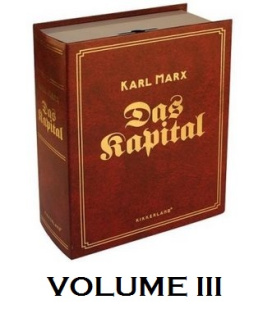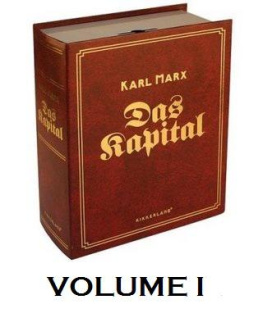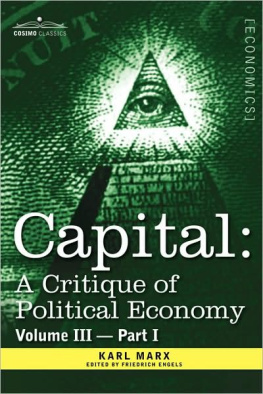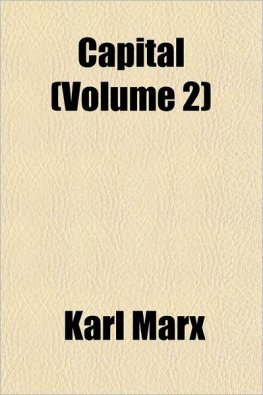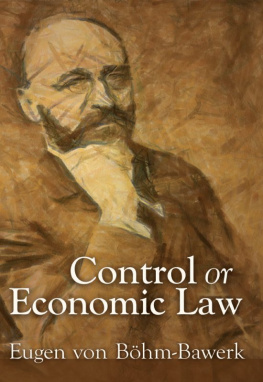KARL MARX
AND THE CLOSE OF HIS SYSTEM
BY Eugen von Bhm-Bawerk
&
BHM-BAWERKS
CRITICISM OF MARX
BY Rudolf Hilferding
Together with an Appendix consisting of an Article by Ladislaus von Bortkiewicz on the Transformation of Values into Prices of Production in the Marxian System
Edited with an introduction
by PAUL M. SWEEZY
AUGUSTUS M. KELLEY
NEW YORK 1949

COPYRIGHT BY AUGUSTUS M. KELLEY, 1949
Printed in the United States of America
by H. WOLFF, New York
CONTENTS
Karl Marx and the Close of his System.
Eugen von Bhm-Bawerk
Bhm-Bawerks Criticism of Marx.
Rudolf Hilferding
Appendix. on the Correction of Marxs Fundamental
Theoretical Construction in the Third Volume of Capital. Ladislaus von Bortkiewicz
EDITORS INTRODUCTION
T HIS volume brings together two of the most important items in the large literature concerned with criticizing and evaluating the economic doctrines of Karl Marx. Bhm-Bawerks contribution, in its English translation, has been out of print and very difficult to obtain for many years. Hilferdings answer to Bhm-Bawerk was brought out in translation by an obscure socialist publisher in Glasgow and never acquired wide circulation in either Britain or this country. In view of the recent growth of interest in Marxism, I believe the time has come to make these works available to a larger English-reading public; and I also believe that each gains in value through being presented side by side with the other.
As an appendix there is included an article by the German statistician-economist Bortkiewicz. This article, bearing on one of the central points at issue between Bhm-Bawerk and Hilferding, has achieved considerable fame; but hitherto it has not been translated into English, and I have seen no evidence that it has been read by more than a handful of specialists. I believe that serious students of Marxian economics, whether hostile or friendly, will be glad to have it made readily available for study and reference.
In this introduction I shall discuss these three works in the hope of illuminating the point of view from which their authors wrote and of placing them in the development of the literature of which they form a part.
BHM-BAWERKS CRITICISM OF MARX
BHM-BAWERKS WORK was first published in 1896, under the title Zum Abschluss des Marxschen Systems, in a volume of essays in honor of Karl Knies. It appeared in Russian the following year and in English (in both London and New York) in 1898.
The original English title is retained here because it is by this title that the work is now widely known. At the same time it is necessary to point out that this title is not strictly accurate and has given rise to misunderstandings. Karl Marx and the Close of His System sounds like an obituary for Marx and his theories; but, though the spirit of an obituary is not lacking from Bhm-Bawerks writing, it would be mistaken to assume that this is what he intended to convey by the title. The third and final volume of Capital was published by Engels in 1894, and Bhm-Bawerks work was in the nature of an extended review. The German title means simply On the Conclusion of the Marxian System, and this describes the work as accurately as a brief title can.
It was quite natural, one might almost say inevitable, that Bhm-Bawerk should write this book. In his well-known history of theories of capital and interest, Hence, when the third volume finally appeared with Marxs detailed treatment of this question, Bhm-Bawerk doubtless felt duty bound to examine it with all possible care and to pronounce his verdict.
In Karl Marx and the Close of His System, Bhm-Bawerk took over the main arguments of his chapter on Marx from the first edition of Capital and Interest; and in subsequent editions of the latter he incorporated the substance of the criticism of the third volume of Capital from Karl Marx and the Close of His System. Nevertheless, the latter is far more detailed and elaborate; not only does it stand on its own feet but it contains all that is important in Bhm-Bawerks writings on Marxian economics.
If we are to understand the significance of Karl Marx and the Close of His System it is necessary to identify Bhm-Bawerk and to recognize his place in the development of modern economic theory.
The relevant facts of his career can be briefly told. Eugen von Bhm-Bawerk was born (1851) into one of the aristocratic-bureaucratic families which were the real rulers of Imperial Austria, his father being at the time a high official in Moravia. When he was still very young his father died and the family moved to Vienna where, except for nine years of teaching at the University of Innsbruck (1880-1889), he spent most of the rest of his life. After taking a course of law at the University of Vienna he entered the Finance Ministry in 1872. In 1875 he took a three-year leave of absence to study economics with some of the outstanding German professors of the day. From this time on, his career was a mixture of government service and university teaching. He served as Finance Minister in three different cabinets (1895, 1897-1898, 1900-1904). From 1904 until his death in 1914 he held a chair in political economy at the University of Vienna.
As an economist, Bhm-Bawerk was from the first a champion of the new subjective value or marginal utility theory which his somewhat older contemporary, Carl Menger, had been the first to enunciate in Austria. Bhm-Bawerk, along with Menger and Friedrich Wieser (whose sister he married in 1880), was thus one of the founders of the so-called Austrian school. His two major works, Capital and Interest and The Positive Theory of Capital, were published in 1884 and 1889 respectively, before he was forty years old; and as the subjective value theory spread geographically and gained in popularity, Bhm-Bawerks fame grew by leaps and bounds. Outside of his own country he came to be much better known than Menger or Wieser, and by the turn of the century it is probable that his international reputation was greater than that of any other living economist, with the possible exception of Alfred Marshall. Only in Britain, where the authority of Marshall and Edgeworth (at Cambridge and Oxford respectively) was virtually unchallenged, did Bhm-Bawerk fail to attract a substantial following; while in countries as widely separated as Sweden, the United States, and Japan his influence upon academic economics was profound.
It is against this background that we must evaluate Bhm-Bawerks critique of the theories of Marx. Organized socialism in Europe experienced a rapid growth in the last three decades of the nineteenth century, and it was also during this period that within the continental socialist movement Marxism won out Hence, while the original reaction of the academic world had been to ignore Marx, it became increasingly difficult to maintain this attitude; as time went on it became more and more urgent to organize a counter-attack.
The publication of the third volume of Capital offered the perfect opportunity, and Bhm-Bawerk was a natural to take the lead. He had already, in Capital and Interest, established himself as a formidable opponent of Marxism by his attacks on what he called the exploitation theory of interest; his international reputation insured that whatever he wrote would receive a wide and respectful hearing. It is therefore not surprising that when Karl Marx and the Close of His System was published in 1896 it was an immediate success and soon became what might almost be called the official answer of the economics profession to Marx and the Marxian school.
Next page





